
Culture & Sports
14:02, 29-Jun-2017
Kazakhs in northern Xinjiang observe end of Ramadan
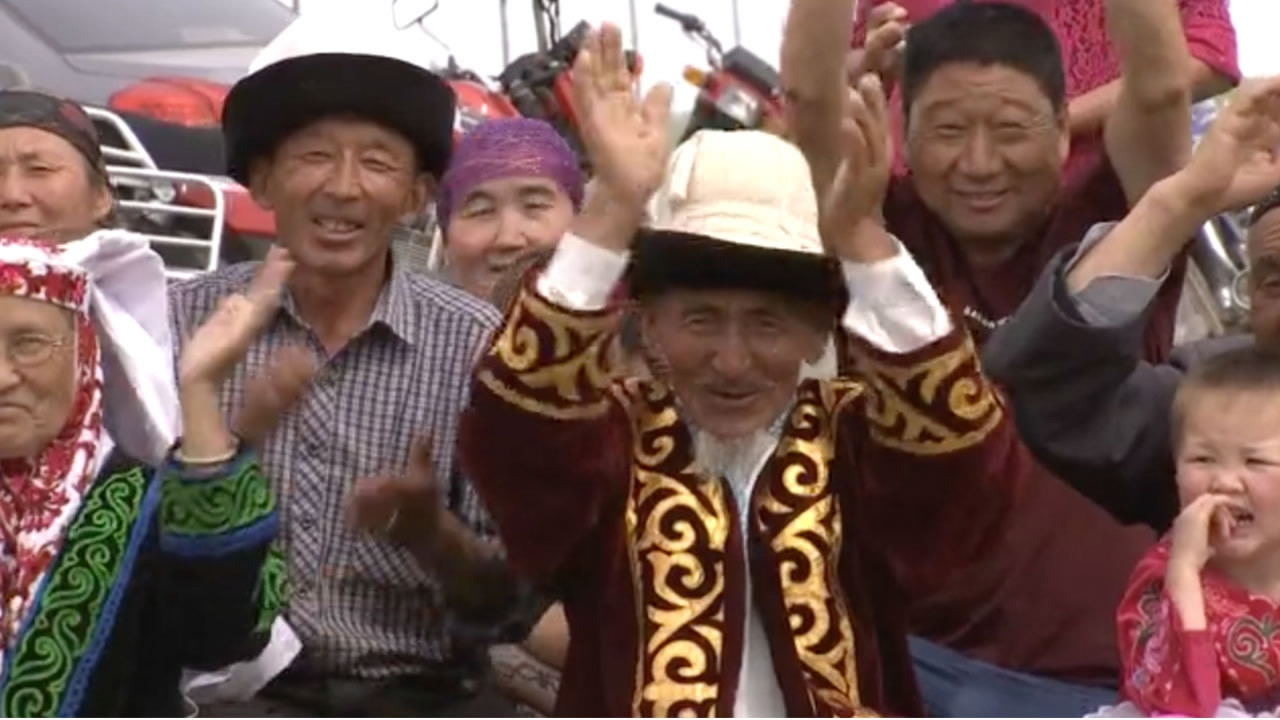
By CGTN's Meng Qingsheng & Zhang Youze
Ethnic Kazakh people in northwest China's Xinjiang Uygur Autonomous Region are among the country's 20 million Muslims celebrating Eid al-Fitr. The festival marks the end of the holy month of Ramadan, during which Muslims fast from dawn until dusk.
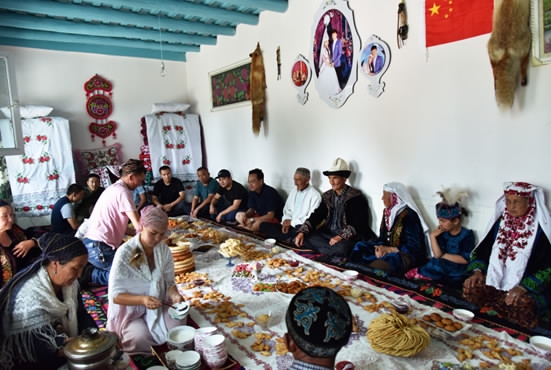
Kazakhs sit together to relish food and snacks specially prepared for Eid al-Fitr. /CGTN Photo
Kazakhs sit together to relish food and snacks specially prepared for Eid al-Fitr. /CGTN Photo
The town of Awulia is a place meaning "immortal life' in the Kazakh language. It’s located in Yining County in northern Xinjiang’s Yili Kazakh Autonomous Prefecture. Locals gather at pastures to celebrate the third and final day of Eid al-Fitr. Juldz Jalhas joins the "girls chasing" performance, an old ritual showing a woman's affection toward a man. She is a sophomore student learning architectural design in Urumqi, Xinjiang's capital city. She came back home to celebrate the festival with family. Like many other Kazakhs, she grew up on the vast pastures.
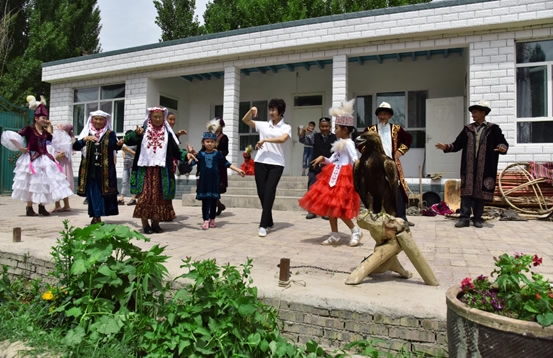
It’s customary for Kazakhs to dance wearing traditional costumes during Eid al-Fitr and other joyful occasions. Juldz Jalhas, first from left, dances with family and friends. /CGTN Photo
It’s customary for Kazakhs to dance wearing traditional costumes during Eid al-Fitr and other joyful occasions. Juldz Jalhas, first from left, dances with family and friends. /CGTN Photo
Most Kazakhs in China live semi-nomadic lives. Their intimacy with mother nature helps develop a unique way of dancing that is relaxed and engaging. Juldz’s family carries on the ancient practice of eagle hunting, but no longer as a profession. Juldz says she still prefers life in the city. Being the first one in the family to go to college, she hopes to land a good job after graduation.
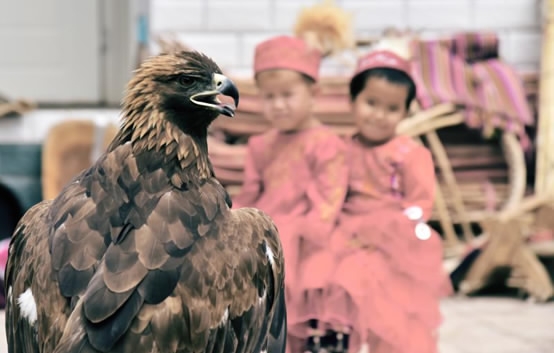
Most Kazakh families still carry on the ancient practice of eagle hunting, but no longer as a profession. /CGTN Photo
Most Kazakh families still carry on the ancient practice of eagle hunting, but no longer as a profession. /CGTN Photo
For most Muslims around the world, Eid al-Fitr is a joyful time for family reunions. But for the Kazakhs, it's a time of separation, as this year's event also marks the start of summer herding, meaning they will soon leave their homes, and spend three months on highland pastures.
Herding provides an alternative way of life and additional income. But the tradition is evolving. The majority of locals enjoy a semi-nomadic way of life, having a fixed place to live.
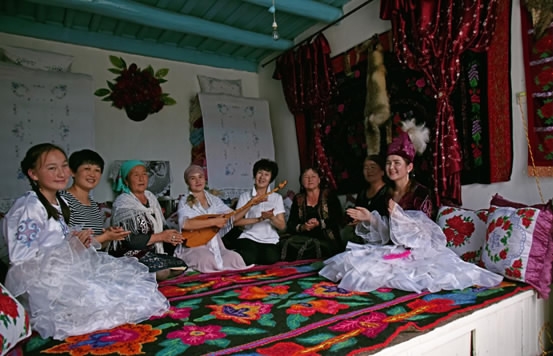
A semi-nomadic life allows Kazakhs to have fixed place to reside in, but some still keep the tradition of doing interior decorating, like in these yurts on highland pastures. /CGTN Photo
A semi-nomadic life allows Kazakhs to have fixed place to reside in, but some still keep the tradition of doing interior decorating, like in these yurts on highland pastures. /CGTN Photo
2918km

SITEMAP
Copyright © 2018 CGTN. Beijing ICP prepared NO.16065310-3
Copyright © 2018 CGTN. Beijing ICP prepared NO.16065310-3